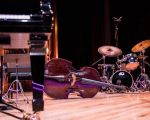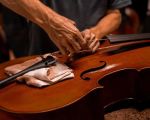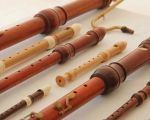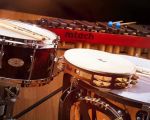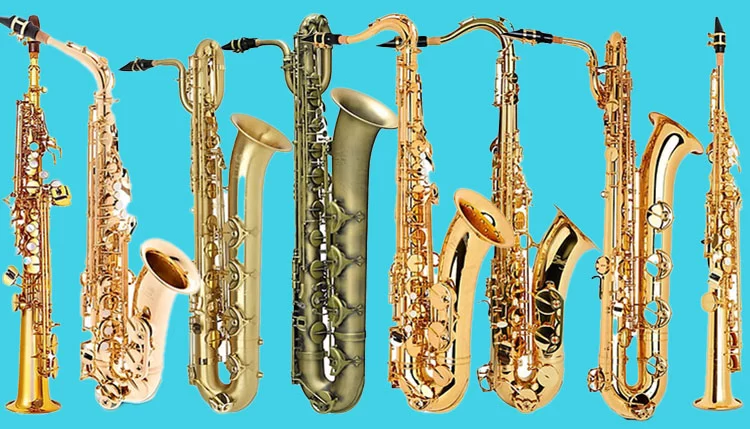
- Why Jazz Saxophones Stand Out in the World of Music
- Key Features to Consider When Choosing Jazz Saxophones
- Top Jazz Saxophone Brands and Models Reviewed
- Real-Life Experience with Jazz Saxophones: Stories and Insights
- Where to Find the Best Jazz Saxophones and Services
1. Why Jazz Saxophones Stand Out in the World of Music
Jazz saxophones are more than just musical instruments; they embody a unique voice and soul in the world of jazz. Unlike classical or pop saxophones, those designed for jazz often prioritize tonal richness, expressiveness, and versatility. This makes the choice of a saxophone crucial for anyone serious about playing jazz. A saxophone tailored for jazz allows musicians to explore a wide range of sounds, from smooth and mellow to bright and edgy, adapting effortlessly to different jazz styles like bebop, swing, or fusion.
Many jazz legends, from Charlie Parker to John Coltrane, have shaped how the saxophone is perceived in jazz music. Their choice of instrument influenced the design and features of saxophones that we now consider ideal for jazz. Understanding this historical and musical context is key for any aspiring saxophonist when searching for the best jazz saxophone to suit their needs.
2. Key Features to Consider When Choosing Jazz Saxophones
2.1 Tone Quality and Intonation
When shopping for jazz saxophones, tone quality is paramount. Jazz players often look for a warm, round tone with the ability to produce both soft, intimate sounds and powerful, resonant notes. The instrument's intonation—how well it stays in tune across registers—is equally important. A saxophone with stable intonation allows musicians to focus on expression without worrying about pitch inconsistencies.
2.2 Build and Material
The materials and craftsmanship behind a saxophone significantly influence its sound and durability. For jazz, brass is the common base metal, but finishes such as lacquer, silver plating, or even gold can affect the instrument’s tonal characteristics. While some players prefer the brightness of lacquered brass, others favor the darker, richer sound produced by silver plating. Additionally, well-constructed key mechanisms ensure smooth playability, which is essential for the fast runs and improvisations typical in jazz.
2.3 Mouthpiece Compatibility
Many saxophonists overlook the impact of the mouthpiece on sound. A mouthpiece tailored for jazz enhances projection and tonal flexibility. Players should consider mouthpiece types, including hard rubber and metal options, which can dramatically alter the saxophone’s voice. Trying out several mouthpieces can help identify the best match for personal style.
3. Top Jazz Saxophone Brands and Models Reviewed
3.1 Selmer Paris
Selmer Paris saxophones have long been a gold standard among jazz musicians. The Selmer Mark VI, in particular, is legendary for its exceptional tone and responsiveness. Many professional jazz artists swear by it, citing its perfect balance of warmth and power. Although it can be an investment, models like these are often passed down and remain highly sought after.
3.2 Yamaha
Yamaha offers excellent saxophones for jazz players at various levels, combining affordability with professional quality. Their Custom series is noted for consistent intonation and ease of play. Yamaha saxophones are often praised for their reliability, making them a great choice for students and professionals alike.
3.3 Yanagisawa
Yanagisawa is another brand celebrated for superb craftsmanship and sound quality. Their saxophones deliver rich tonal depth and fluid key action, which is ideal for complex jazz improvisation. Many musicians appreciate the brand's attention to detail and customization options.
3.4 Case Study: A Jazz Player’s Choice
Jazz saxophonist Marcus Thompson, known for his expressive style, shared how switching from a Yamaha to a Selmer Mark VI transformed his sound. He explained, “The Selmer’s tonal palette gave me more freedom to experiment and connect emotionally with my audience. It was like discovering a new voice.” This story highlights the impact the right instrument can have on artistic growth.
4. Real-Life Experience with Jazz Saxophones: Stories and Insights
4.1 Learning Curve and Player Comfort
Many saxophonists recount how the feel of the instrument in hand influences their progress. Comfort in key spacing and weight can make a significant difference, especially during long practice sessions or performances. For example, emerging jazz artist Sarah Lin noted that her choice of a lighter Yamaha saxophone allowed her to practice longer without fatigue, which accelerated her learning curve.
4.2 The Role of Accessories
Beyond the saxophone itself, accessories such as reeds, neck straps, and cases can affect performance and instrument longevity. Choosing the right reed strength and type can enhance tonal expression, while a quality neck strap supports comfort and posture.
4.3 Story from the Jazz Community
Online forums and jazz workshops often feature passionate debates about the “best” jazz saxophone. These conversations reveal a shared understanding: the perfect saxophone is subjective, deeply connected to personal sound preferences and playing style. This community wisdom encourages players to test instruments personally rather than rely solely on reviews.
5. Where to Find the Best Jazz Saxophones and Services
For those ready to invest in a jazz saxophone, finding trusted sources is crucial. Beat Trigger offers an excellent platform where users can explore carefully curated options of jazz saxophones, tailored to different budgets and skill levels. Beyond instruments, Beat Trigger also connects players with expert repair services, mouthpiece customization, and educational resources to help maximize their jazz journey.
Whether you are a beginner hunting for your first saxophone or a seasoned pro seeking a vintage model, Beat Trigger can help navigate the complex market and ensure you make an informed purchase. The site’s detailed product reviews and community feedback create a trustworthy environment for jazz enthusiasts to discover their ideal saxophone.


